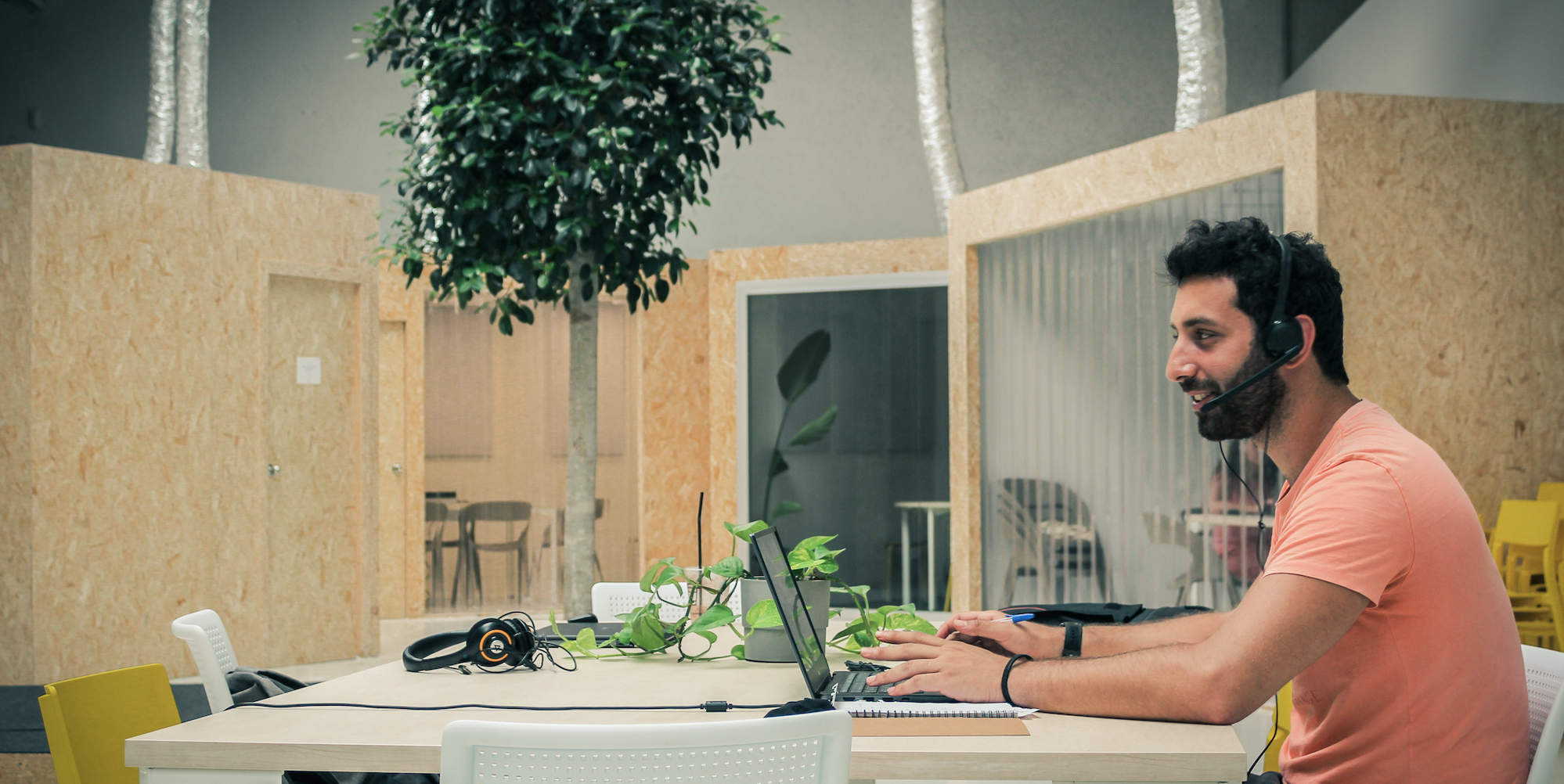The increase of coworking spaces have changed our vision toward work. Coworking spaces intent to create a community in where everyone feels part of, adn therefore is motivated to grow and prosper. It is also important to mention how sustainability and coworking are related, they are linked as they boost for a positive change within the dynamic work model.
Reduced Carbon Footprint
One of the most significant ways in which coworking spaces contribute to sustainability is through the reduction of carbon footprints, by centralizing office spaces and creating shared work environments. Coworking space refers to sharing space, therefore this reduces the amount of individual offices, which means that less energy is being consumed and less resources are needed. Shared facilities such as kitchens, meeting rooms or toilettes means that energy consumption is distributed between a larger number of people. This is therefore a better solution than having private facilities, minimizing the environmental impact that appears when building and mantaining office spaces.
Resource Optimization
Resource optimization is achieved by sharing equipment between the members of the coworking space, instead of each company owning their own equipment. This reduces the overall consumption of material, which is the best method of helping the environment. By using less material fewer resources need to be extracted, processed and manufactured. Additionally, the efficient use of office supplies and amenities helps minimise waste generation. It also fosters a culture of sustainability among the coworking community.
Encouraging Sustainable Practices
Coworking spaces create a collaborative community in which evryone wants to participate, no one is left out. Itnig, as well as the other coworkings in Poblenou is very concerned about sustainability, therfore within our community we engage less plastic use, recycling and re-used packaging. We also promote greatly and invest in eco-firendly startups or small businesses who have a sustainable project. We intent that our coworkers adopt environmently friendly habits in their day-to-day life at the office so they can apply them everywhere else, and engage more people to follow a sustainable living.
Economic Benefit
Sharing is caring, and by sharing not only you feel better but also you obtain great benefits. Sharing something will always be more cost-effective, the same applies for sharing a working space. In the end you will benefit from much cheaper prices with a coworking space than if you were to rent out or buy your own working space, you also avoid the economical cost of maintainence. This money saved can be destinated to eco-projects that help the environment.
The coworking trend is continuing to expand and you can be part of it! By joining a community like this you will benefit from social and economical aspects that can help you in your working life. We have to take care of the planet we live in and must protect it. This way we can ensure a life of well being and harmony. Being Green and adopting the coworking trends is very easy at Itnig Spaces. Get to know our memberships here.
This post is also available in: Español (Spanish)
